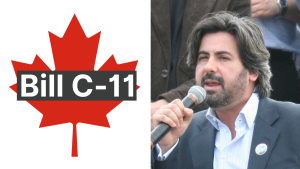From the Snowden Revelations to the Pegasus Project – How we have allowed big tech to build a prison around us

Inside one of the prison buildings at Presidio Modelo, Isla de la Juventud, Cuba. Source: Friman, Wikimedia Commons
Snowden refresher
A big event happened eight long years ago, in 2013. This was the moment when Edward Snowden, NSA contractor employed by Booze Allen, revealed to journalists Glenn Greenwald and Laura Poitras that the NSA had the unlimited capacity to enter our phones. Up until this time, it was widely believed that absent specific warrants, state security agencies were only able to monitor ‘metadata’, i.e. the more general information about our communications, but not the communications themselves.
Snowden performed the historically important service of confirming what so many of us suspected but which seemed impossible, the reality that every detail of what we do, say and write can be observed and recorded at all times.
At the time of Snowden’s revelations the shock was enormous. And as a result, many believed that public attitudes toward surveillance would permanently change. A mixture of ignorance and denial had allowed the surveillance capacities of both the tech giants and the security agencies to develop enormous capacities for watching and tracking all of us. After the Snowden shock it was widely believed that pressure to alter this reality would become irresistible. Snowden and others believed that new public awareness coupled with inevitable loss of acceptance would force change.
The public was shaken, and the U.S. government reacted with proportional drama and severity. The Obama administration cancelled Snowden’s passport within hours of learning of his revelations. They moved swiftly to charge him under the Espionage Act of 1917 and mounted an enormous pressure campaign to try to ensure that he would not receive safe haven from any other government. He managed to find his way to Moscow, where he was granted temporary and then eventually permanent asylum. If the U.S. had succeeded in forcing him to return, his fate would almost certainly have been a life-long prison sentence.
Now, eight years later, another leak, the details of which are still unclear, has the story of Pegasus splashed across the news. Pegasus is sophisticated spyware developed by an Israeli software company, NSO. The Pegasus details have been brought to us by a consortium of media from multiple countries—in particular thanks to Amnesty International and a small media organization called Forbidden Stories.
We discussed the Pegasus story in detail here.
Pegasus public reaction: big yawn. ‘I’m not doing anything wrong, so I have nothing to hide.’
Last week, Snowden himself called the latest Pegasus stories ‘the most important story of the year.”
Stop what you're doing and read this. This leak is going to be the story of the year: (LINK: https://t.co/zhC0LN4TlC) pic.twitter.com/doo4HDDzxt
— Edward Snowden (@Snowden) July 18, 2021
Not surprisingly for someone with such an enormous personal stake in this issue, Snowden sadly underestimates our ability to bury our heads and continue to live in almost total denial of the invisible surveillance net that is being built around us. It’s not clear that his personal sacrifice has accomplished anything other than to habituate us to the reality of complete surveillance. The initial shock has led to a strange acceptance. And rather than outrage, what we hear today is mostly silence. Our government and other governments around the world wait for the story to blow over. And they are certainly reassured as citizens everywhere, and especially in North America, yawn complacently with disinterest.
“…the mobile ecosystem is a dystopian hellscape of end-user monitoring and outright end-user manipulation, it is still hard for many people to accept that something that feels good may not in fact be good.” – Edward Snowden
But while revelation after revelation confirms our knowledge of how real this problem is, our complacency only grows. The fact is that Pegasus simply confirms the earlier Snowden revelations. We know absolutely that governments are competing with each other to develop and deploy unlimited surveillance capabilities. They use private companies, like NSO, who have close relationships with their governments, to develop the weapons. The weapons themselves become easier to use, more difficult to detect and are spreading beyond anyone’s control.
Like a herd of sheep tracked by wolves, we may have believed there was some safety in the obscurity of the crowd. We may even still believe this as so far it appears that the Pegasus activities mostly center around journalists or prominent politicians. We reassure ourselves that our personal lives and communications would be of no interest to anyone. Denial is a seemingly rational response when confronted with such an extreme reality. Most of us could, and would, go on without any change in our lives.
The Panopticon
The panopticon was designed by Jeremy Bentham, a philosopher and social theorist of the mid 1700s. Bentham had in mind an architectural design which could enable a central monitor or guard to observe a large group of individuals simultaneously. His idea was meant to work equally well in a prison, hospital or school, but it is the prison design that he developed in the greatest detail.
Plan of Jeremy Bentham’s panopticon prison, drawn by Willey Reveley in 1791
In Bentham’s imagined Panopticon the guards could monitor every prisoner from one central location. It is vital to note that the most important aspect of the panopticon is not the most obvious one—that the guards can see everyone. It is that an individual prisoner, never knowing when they are actually being observed, learns to alter their own behavior in the expectation that they are always being watched.
“Although it is physically impossible for the guards in a panopticon to observe all the inmates, the fact that the inmates cannot know when they are being watched means that they are motivated to act as though they are being watched at all times. Thus, the inmates are effectively compelled to regulate their own behaviour.”
While Bentham may have been imagining an architectural design and concrete buildings, his basic idea is being more actively developed today than he could have ever imagined. Our phones are the new glass walls of the cells he once imagined. But we carry them with us voluntarily; no armed prison guard has to lead us to our cells. We go willingly and eagerly. We applaud as the walls of our own digital panopticon are being built around us by the tech companies that we imagine serve us and by the security agencies we imagine protect us.
The online mobs and the cancel culture of social media work in just the same way as the state surveillance revealed by Snowden and the Pegasus Project. They are effective because they frighten everyone, not just their specific targets. Everytime someone gets singled out for their tweets and cancelled, everyone else learns their lesson; to remain quiet. We learn to police our own words and our own thoughts.
Revelations like those from Snowden and the Pegasus Project have this same unexpected and counterintuitive effect. Instead of rejecting the control, we increasingly learn to adapt and self censor. The panopticon effect lies exactly in this acceptance of the new normal. Afraid to say the wrong thing, we self censure our discourse and the allowable range of ideas becomes more and more narrow. Those who fail to ‘check their words’ are cancelled and provide an example for the rest.
A younger generation is growing up knowing no other reality than this one.
It is not the technology that is at fault, and there was nothing inevitable about this outcome. Surveillance technology in all its forms has developed in a very specific way because of a system we embrace that is based on profit above all else. We eagerly trade away our freedom and privacy for convenience and superficial luxuries. Like the citizens of Rome before its inevitable fall, we have our bread and our circuses, and we are happy.
See also:
How about a coup against Silicon Valley?
Breaking up the Tech Giants is not Enough
Pegasus, Pandemics, and the Normalization of Surveillance
Links:
The Age of Surveillance Capitalism – by Shoshana Zuboff
The Insecurity Industry – The greatest danger to national security has become the companies that claim to protect it – Edward Snowden
How The NSO Group Enables State Terror – Digital Violence
Pegasus Stories – narrated by Edward Snowden
Internalized Authority and the Prison of the Mind: Bentham and Foucault’s Panopticon – Joukowsky Institute for Archaeology & the Ancient World, Brown University
Inside an Abandoned Panopticon Prison in Cuba – The striking Presidio Modelo once housed Fidel Castro.
What does the panopticon mean in the age of digital surveillance? – The Guardian




